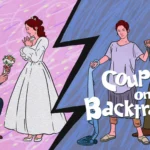
It’s a rite of passage for every Singaporean child: taking his Primary School Leaving Examination (PSLE), waiting with bated breath for his scores to come out, and showing the results to his parents—in either sheer relief or fearful trepidation.
This feeling is perhaps best summed up by 12-year-old Ariel Yeoh.
“I want the results to come out quickly so I can see what I got, and the seemingly endless wait will be over,” she shares. “I’m worried that I will not meet my expectations, and will feel disappointed that both my and my parents’ hard work, time and money would be wasted.”
And it’s not just the children who are waiting with anticipation. Many parents, too, are eyeing the PSLE results date with some anxiety. After all, many of us have been preparing our children for this major exam for the past six years.
So, with the stress of taking PSLE now over, and the results just round the corner, how have we been preparing our children—and ourselves—for that moment? And how might our children be hoping we’ll react, regardless of how they do?
Give Us This Day 11
Get our latest family devotional!
Our latest devotional, Give Us This Day 11, is now available.Get a copy
Every month, we roll out a new resource for families. Subscribe to our email updates, and be the first to get a copy!
How to Respond to Good Scores . . . Or Disappointing Ones
“If it’s a good score, I hope my parents will say: ‘Well done!’,” says Gabriel Ho. “If I get a score I didn’t expect, I hope they will say: ‘You’ve done your best. It’s okay.’”
Gabriel’s sentiments resonate with many other children. Sophie Tay also says: “I hope my parents will be proud of me regardless of my PSLE score. If it’s a good score, I hope they would tell me, ‘Good job! You did well!’”
Such words of affirmation and encouragement are important for children, says Sophie’s mother Susan Koh, who is a family life specialist at Focus on the Family.
If your child gets the expected results, parents should praise them, and acknowledge their efforts and hard work. “Give them hugs, high-fives, and ask: ‘How would you like to celebrate?’” she suggests.
In the midst of celebrations, it’s also a good time to invite your child to recognise and reflect on God’s goodness throughout their PSLE journey—“not just for the good outcome, but also for seeing them through this challenge,” she adds.
“Let every word be spoken in love and be a balm to their disappointment. Give a reassuring hug and affirm your child of your unconditional love and acceptance, which is not measured by how well he has fared.”
However, if your child gets results that are disappointing, it would help to give him space to process his feelings. Parents, advises Susan, should also give themselves time to accept the results, and not point fingers at their child, spouse, or even themselves.
Susan also advises parents to avoid the following:
- Shame your child by questioning if they studied hard enough or saying that you are ashamed of his results.
- Threaten to remove privileges or dish out punishment.
- Blame him for not spending more time on his studies, or for spending too much time on the computer.
- Guilt-trip your child by pointing out how much you’ve spent on his tuition or enrichment classes.
- Abandon him by walking away in disappointment or anger.
While it may be understandable for parents to feel disappointed or even frustrated when their children don’t do as well as expected, Susan stresses that “words at this time will carry extra weight”.
“Let every word be spoken in love and be a balm to their disappointment,” she says. “Give a reassuring hug and affirm your child of your unconditional love and acceptance, which is not measured by how he has fared.
“Once things have settled down, you can sit down with your child and evaluate what he can do differently and how you can better support him in future.”
What Our Kids Want to Hear—and Don’t Want to Hear
Some children have said that while their parents do their best to encourage and comfort them, there are also times when they wished their parents reacted differently when presented a less-than-stellar report card.
Sophie’s parents, for example, had sat her down and gone through past test and exam papers. They had made effort to praise her for what she did well in and highlighted her improvements, while also scolding her for being careless at times and coaching her for the next exam.
However, she also hopes that they can be kinder with their words.
“I wish that they would not point out my mistakes and say things like: ‘Why did you forget how to answer this question?’ or ‘This is a simple question’,” she says.
“I wish that they would not point out my mistakes and say things like: ‘Why did you forget how to answer this question?’ or ‘This is a simple question’.”
Gabriel, too, says he doesn’t like to be nagged over his mistakes. At the same time, he’s grateful when his mother doesn’t compare his results or behaviour with his peers. “I like it when she brings me out to eat my favourite food to celebrate my effort, or to celebrate the end of the exam,” he says.
Likewise, Ariel appreciates her parents for helping her strive to do better. “There have been times where I did terribly in Chinese, and I am thankful that my parents helped me through this.”
She adds: “They pray with me, take time to talk to me, encourage me, and ask me to take time off for a break. My mother also finds resources, like special Chinese flashcards, to help me.”
Preparing for Results Day
Some parents take time to prepare themselves, spiritually and emotionally, for the day their child’s PSLE scores are out.
Gabriel’s mother, Yvonne Kong-Ho, shares that she prays to guard herself against feelings of guilt and regret over not spending enough time to guide her son, or not signing him up for more tuition.
“Perhaps more could have been done, but at what cost?” she reflects. “I might have been able to ‘force’ my child to revise for 12 hours a day, but end up with a very stressed and unhappy child who might become averse to studying. I think it’s not worth it.”
She adds: “Regardless of the results, he is my dearest son and I delight in him. I appreciate and love him for who he is, not what grades he brings home or what he can bring to the table.”
So, Yvonne and her husband have agreed not to compare their son’s results with those of their friends’ children. They have also decided not to share his score with family or friends, unless he agrees to it.
“I might have been able to ‘force’ my child to revise for 12 hours a day, but end up with a very stressed and unhappy child who might become averse to studying. I think it’s not worth it.”
Likewise, Sophie’s mother, Susan, constantly reminds her daughter that her identity is not defined by her grades or achievements, but that she is simply loved as her daughter and God’s child.
Before the PSLE, she even came up with an alternative acronym for the national exam: Parents, Speak Love and Encouragement.
As first-time parents going through the “PSLE roller coaster”, she and her husband had at times felt like they were being swept away with excessive worrying, she recalls.
So, she decided to avoid unnecessary stress by engaging less in group chats with fellow parents that tended to over-emphasise PSLE grades and getting into “good” schools.
“While the information can be helpful, the conversations can be unhealthy when they lead to envy or jealousy,” she says.
When this year’s results are out, Susan and her husband plan to tell Sophie how proud they are of her, and affirm her for her effort.
“Academic results are not the end-all of things . . . God looks at the heart, and the more important things in life are the values we live by.”
“As a family, we want our first response to demonstrate love and acceptance, regardless of the grades she has achieved,” she says. “Our single-minded effort is to help Sophie focus on her own lane, and not make comparisons with anyone else.”
Ariel’s father, Robin Yeoh, also plans to support his daughter regardless of her result.
“I’m generally at peace, as I understand that PSLE results do not define anyone,” he says. “I am more concerned that my child will be able to accept the results, and will react positively to whatever results she gets.”
He reflects: “In my experience in the marketplace, I’ve learnt that academic results are not the end-all of things. In my walk with God, I also know that He looks at the heart, and the more important things in life are the values we live by.”
Coping with Anxiety
While some of us may know in our heads that our children’s lives are not defined by their PSLE scores, our hearts may still feel differently.
Susan advises parents to take time to reflect on the roots of their anxiety. For example, is it a fear that their child will not enter the school of their choice? Are they worried that their child’s scores would be a reflection of their success or failure as parents?
“As PSLE is the first of many milestone exams, parents need to be mindful of the messages they send to their children with their expectations. What children hear from their parents will invariably shape their identity.”
She encourages parents to look out for underlying beliefs such as:
- “If my child does not qualify to certain schools, I have failed as a parent.”
- “If my child doesn’t do well, others will think I’ve not done enough to be a good parent.”
“As the PSLE is the first of many milestone exams, parents need to be mindful of the messages they send to their children with their expectations,” says Susan. “What children hear from their parents will invariably shape their identity.”
She adds: “Anxious parents may pass their anxiety on to their children, creating more tension at home. So, it’s important for parents to manage their own expectations, so that children don’t have to bear the burden of disappointing their parents.”
Biblical Promises You Can Hold On To
One thing that will keep families anchored during this time of stress and anxiety is the Word of God. As PSLE results day approaches, some parents say they find it helpful to meditate on the Bible, and reflect on what it says about their children’s identity, calling, and future.
For Yvonne, Gabriel’s mother, one passage that the Lord has impressed upon her heart to pray for her son is Proverbs 3:3–4: “Let love and faithfulness never leave you; bind them around your neck, write them on the tablet of your heart. Then you will win favour and a good name in the sight of God and man.”
Says Yvonne: “It’s my prayer that he will learn from this PSLE experience, refine his learning habits, dispositions and studying techniques, and look forward to the next phase of his educational journey with joy, peace and confidence.
“Most importantly, I pray that he will know that in this next phase that he is not alone. God is with him, and his family will be on this journey with him, too.”
For Angie Yeow, Colossians 3:23 and Philippians 3:12–14 are grounding reminders of her son’s calling in life—to strive to please God in all things and towards Christlikeness in this race of faith.
“Our worth as parents is not in the performance of our children, but in Christ alone.”
“Our worth as parents is not in the performance of our children, but in Christ alone,” she notes. “It is our privilege to be guardians of His children as sojourners on earth—our role is to nurture them for God’s eternal kingdom purposes.”
She adds: “It took 12 years of humbling ourselves before God for my husband and I to stop linking academic pursuits to our worth as parents. I say this when my kids’ grades are poor, and even when their grades are outstanding.
“It takes constant refocusing on God, and intentional thanksgiving to walk humbly throughout my kids’ learning journey.”
Susan finds great comfort in the promises of Ecclesiastes 3:11 and Romans 8:28. “God has a plan for every detail in our life, and that He is sovereign and always in control,” she says.
“While we may only see what is in front of us, God, who is from eternity to eternity, sees the full picture of our lives, and He makes all things beautiful in His perfect timing,” she adds. “His plans for us may not be revealed now, but we can be certain that He has a purpose for us, if we continue to love Him with all our heart, soul and mind.”
Cherishing Our Children
In the meantime, some parents say they are cherishing this precious time with their 12-year-olds, before they embark on their next journey in secondary school.
“We often view Primary 6 as the ‘PSLE year’, but we’ve come to embrace it as an exciting tween-to-teen milestone too,” says Angie.
To prepare their children for teenhood, she and her husband are taking time to bond with their children individually. Her husband took their two sons for a staycation at the end of their Primary 6 year, and Angie plans to do the same with her daughter in two years’ time.
“It just so happens that they have the PSLE to mark that year, and when it ends, it’s a wonderful time to enjoy and celebrate, as well as prepare them for the journey ahead,” she says.
“My role as a mum is not only to help Sophie take a long-term view of this academic journey, but also help her take a long-term view for her life and to live out the purposes and plans God has in store for her.”
Likewise, Yvonne has been enjoying Gabriel’s company, unwinding with him over board games and video games, and watching their favourite movies together. She proudly notes that her son has been helping out with household chores and cooking for the family.
Susan, too, reflects: “This whole PSLE journey has been about remembering to parent with faith and not fear. While the PSLE is often regarded as a high stakes’ exam, it is also one of the many hurdles in life that my daughter will face.
“My role as a mum is not only to help Sophie take a long-term view of this academic journey, but also help her take a long-term view for her life and to live out the purposes and plans God has in store for her.”
With thanks to Focus on the Family Singapore, which helped us reach out to parents and children. Focus on the Family is organising “The Select: Mission 1114”, an online programme on 11 December 2021 that aims to strengthen parent-child bonds and build a strong foundation for the teenage years. Find out more at www.family.org.sg/theselect




